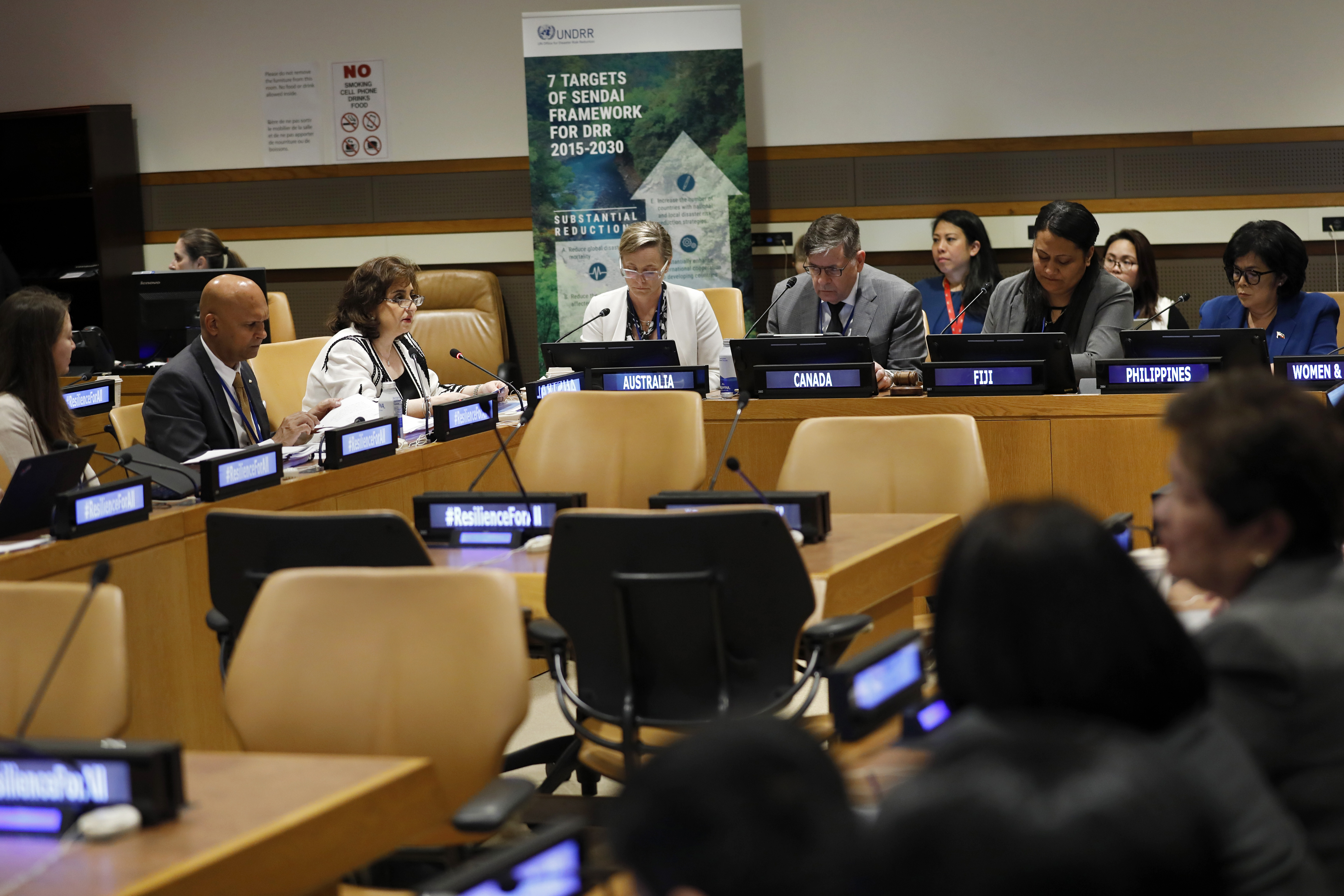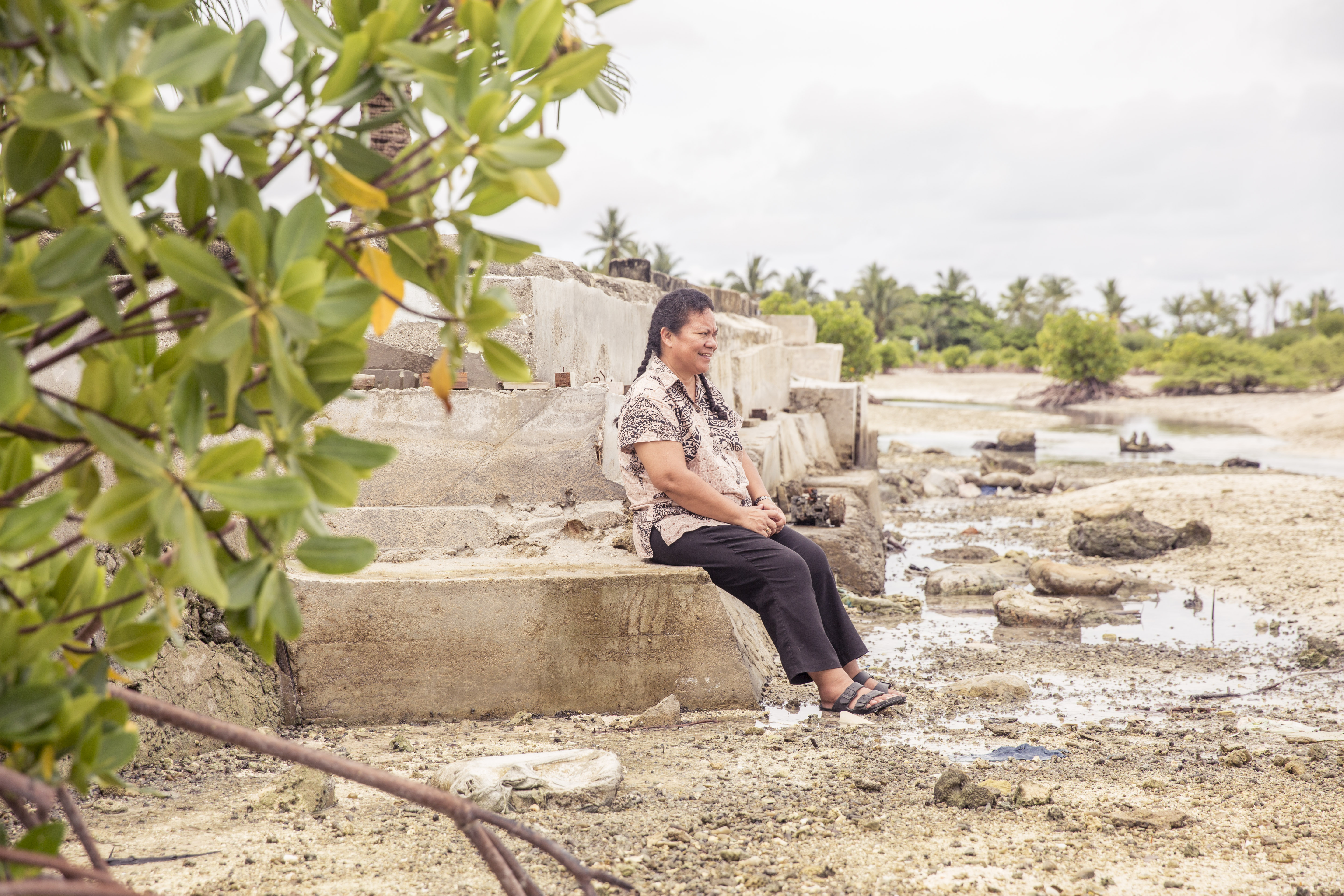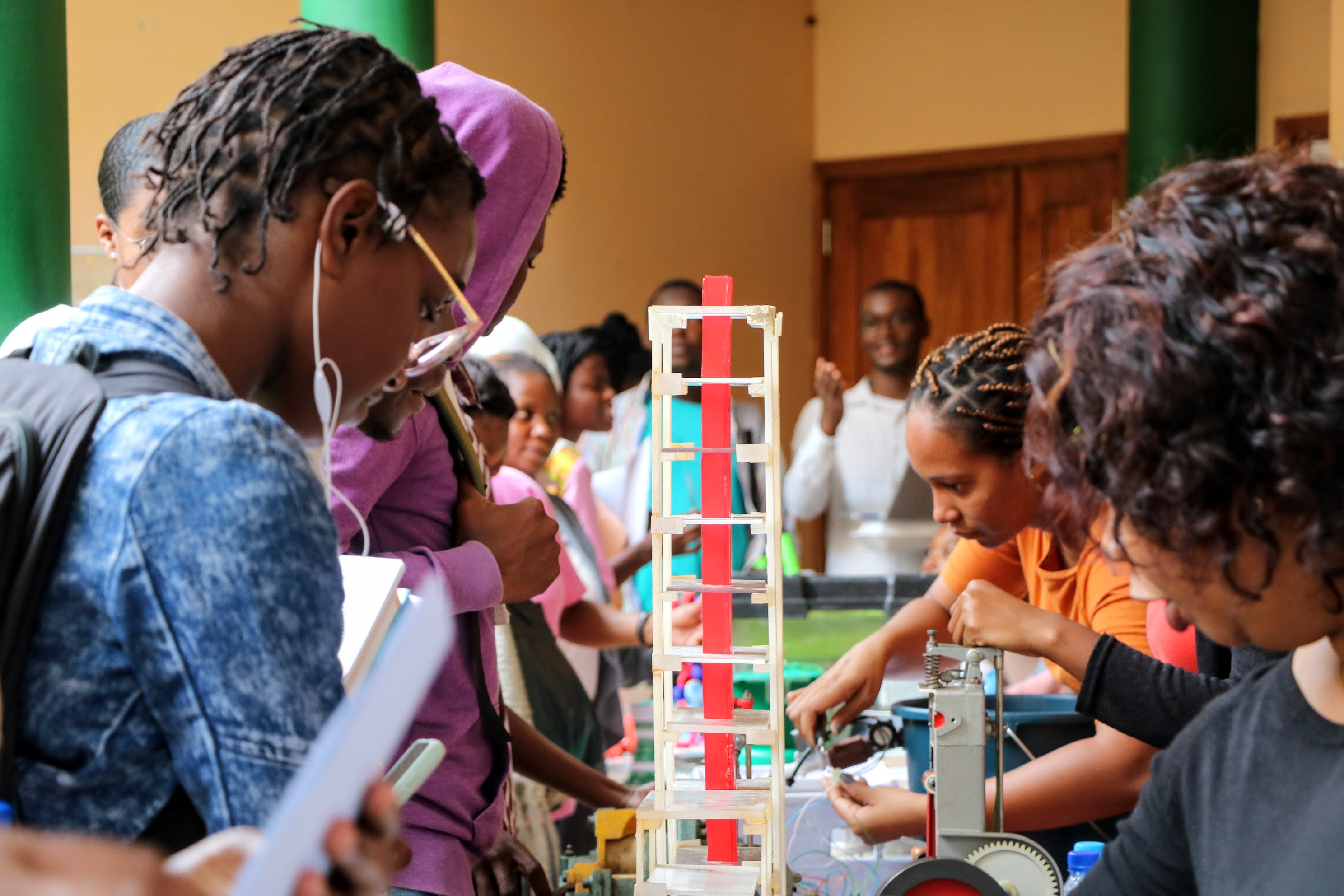The Sendai Framework and its gendered implementation
The regional platforms provide an opportunity for formulating Regional Action Plans that are gender-responsive.
Content for the offcanvas goes here. You can place just about any Bootstrap component or custom elements here.
At a time of growing risks and vulnerabilities, UN Women recognizes the urgent need to optimize the work of the next seven years of the Sendai Framework’s implementation to achieve gender-responsive disaster risk reduction.

Worsening climate change, environmental degradation, and extreme weather, coupled with poor planning and adaptation measures, are intensifying disasters at an alarming rate. The impacts of such disasters are highly gendered, with women and girls carrying the brunt of impacts such as the destruction of natural resources and infrastructure.
Women typically have lower levels of resilience and capacity to withstand disasters and recover than men. They suffer higher losses in livelihoods due to greater dependence on natural resources and agriculture in disaster-prone areas. Unequal and restricted access to economic, social, and political resources—such as decision-making power within families and governing bodies—influences their life expectancy and access to post-disaster assistance, compensation and recovery. Amid the fallout of disasters, women and girls also face a heightened risk of sexual and gender-based violence.
But the disproportionate vulnerability of women and girls—and, crucially, the power of their leadership to strengthen our collective resilience to such impacts—continues to be overlooked.

This critical issue was highlighted last month, when global representatives gathered at UN Headquarters for the High-Level Meeting (HLM) of the Midterm Review of the Sendai Framework on Disaster Risk Reduction (DRR). The first major agreement made within the framework of the Sustainable Development Agenda, the Sendai Framework for Disaster Risk Reduction 2015-2030 (Sendai Framework) provides Member States with concrete actions to protect development gains from disaster risk. Its midterm review process was undertaken over the course of the past 18 months—revealing significant gender gaps in its implementation.
At a time of growing risks and vulnerabilities, UN Women recognizes the urgent need to optimize the work of the next seven years of the Sendai Framework’s implementation to achieve gender-responsive disaster risk reduction. In this context, UN Women is working to foreground the needs of women and girls and support their full engagement at all levels of decision-making related to disaster risk reduction.
We continue to learn from and work alongside women’s organizations and governments who are already leading gender-responsive DRR efforts, as evidenced by the side event UN Women co-hosted on accelerating action for gender-responsive DRR. And we will continue to support Member States in developing a Gender Action Plan (GAP) for the Sendai Framework, working alongside our partners UNDRR and UNFPA to provide a roadmap for coordinated action that promotes gender equality and women’s leadership in line with the recommendations outlined in the UN joint study on the Status of Gender Equality and Women’s Leadership in Disaster Risk Reduction.
The midterm review was a pivotal opportunity for ensuring gender equality and women’s empowerment was recognized as a priority for the remaining seven years of the Framework’s implementation. This progress built on achievements at CSW66, the 2022 Global Platform on DRR and the 2022 Asia Pacific Ministerial Conference on DRR, which all highlighted Member States’ support for a Gender Action Plan (GAP) for the Sendai Framework.
A GAP would help ensure the needs and abilities of women and girls are taken into account throughout the implementation of the Sendai Framework. And it would help drive much-needed resources and support towards existing women-led efforts to render their communities and countries more resilient in the face of worsening disaster and climate impacts.
In acknowledgment of this potential, Member States included a reference to a GAP for the Sendai Framework in the Political Declaration of the High-Level Meeting—strong recognition of the disproportionate risks faced by women as well as the need to elevate their leadership for gender equitable disaster response and recovery.

UN Women is dedicated to ensuring that gender considerations are fully integrated into the Sendai Framework implementation, including its midterm review. UN Women supports the UN system to ensure gender-responsive DRR under the guidance of the UN System’s Senior Leadership Group (SLG) on DRR for Resilience, which brings together 50 UN entities.
UN Women is also supporting countries in this effort by providing technical assistance and mobilizing our global network of DRR and gender experts, as well as over 400 women’s organizations specializing in climate and disaster resilience. Our commitment to gender-responsive disaster risk reduction and resilience policy frameworks has already made a significant impact in 61 countries. These results reflect work across all of UN Women, guided by the Women’s Resilience to Disasters (WRD) global programme. The WRD programme embodies UN Women’s triple mandate in-action: country-driven and locally-owned actions, supported by regional and global normative and coordination components which create an enabling environment for women’s agency, leadership, knowledge exchange, and advocacy for gender-responsive resilience.
By prioritizing gender considerations in disaster risk reduction, we are strengthening women's resilience and elevating their power to help shape a better future.